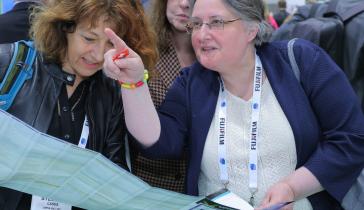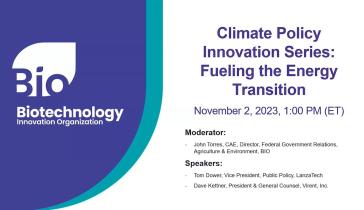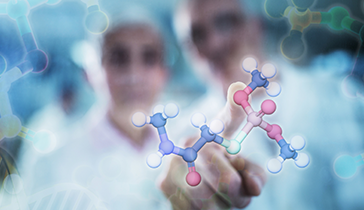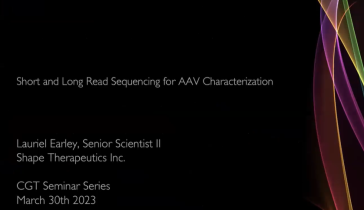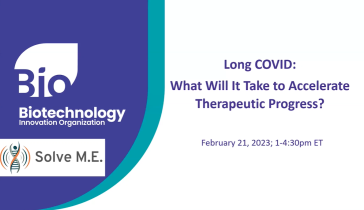Biotechnology innovation is helping to heal, fuel, and feed the world. These webinars represent BIO spotlighting some recent scientific developments.
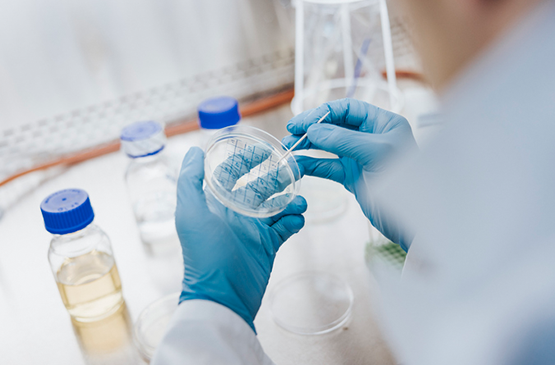
Join Thermo Fisher Scientific for an exclusive webinar introducing a transformative approach to biologics development and clinical scale-up. Their "Path to IND for Biologics" method accelerates the journey from DNA to IND/IMPD submission and first-in-human clinical trials in as few as 9 months. Dr. Elena Gontarz, a leading expert in the biologics industry, will guide you through this innovative process, leveraging AI/ML, transposase technology, and integrated solutions during the session: "Path to IND for Biologics: From DNA to First-in-Human in 9 Months." Following the presentation, Dr. Gontarz will answer audience questions and discuss how these novel strategies can streamline the development of complex biologics, such as Fc-fusion proteins and bispecific antibodies, driving them swiftly from development to commercialization.
Get a sneak peek on this novel platform
Terms and Conditions: Titer levels provided are estimates based on third party results and may vary depending on molecule type or other factors. Timeline from DNA to drug product and start of clinical trials for all path to IND for biologics options may vary depending on molecule type or other factors and are estimates to be finalized after third party cell line development dates are available and confirmed. 9-month timeline will incur additional risk.
Learn more about Dr. Elena Gontarz's expertise and background:

Is this the first time you’re attending BIO International Convention? This webinar is for you! We’ll cover all the basics of where to go and what to do - plus, you’ll get some insider tips from the BIO team on this year’s exciting event.
If you haven't already registered, please learn more and register at convention.bio.org
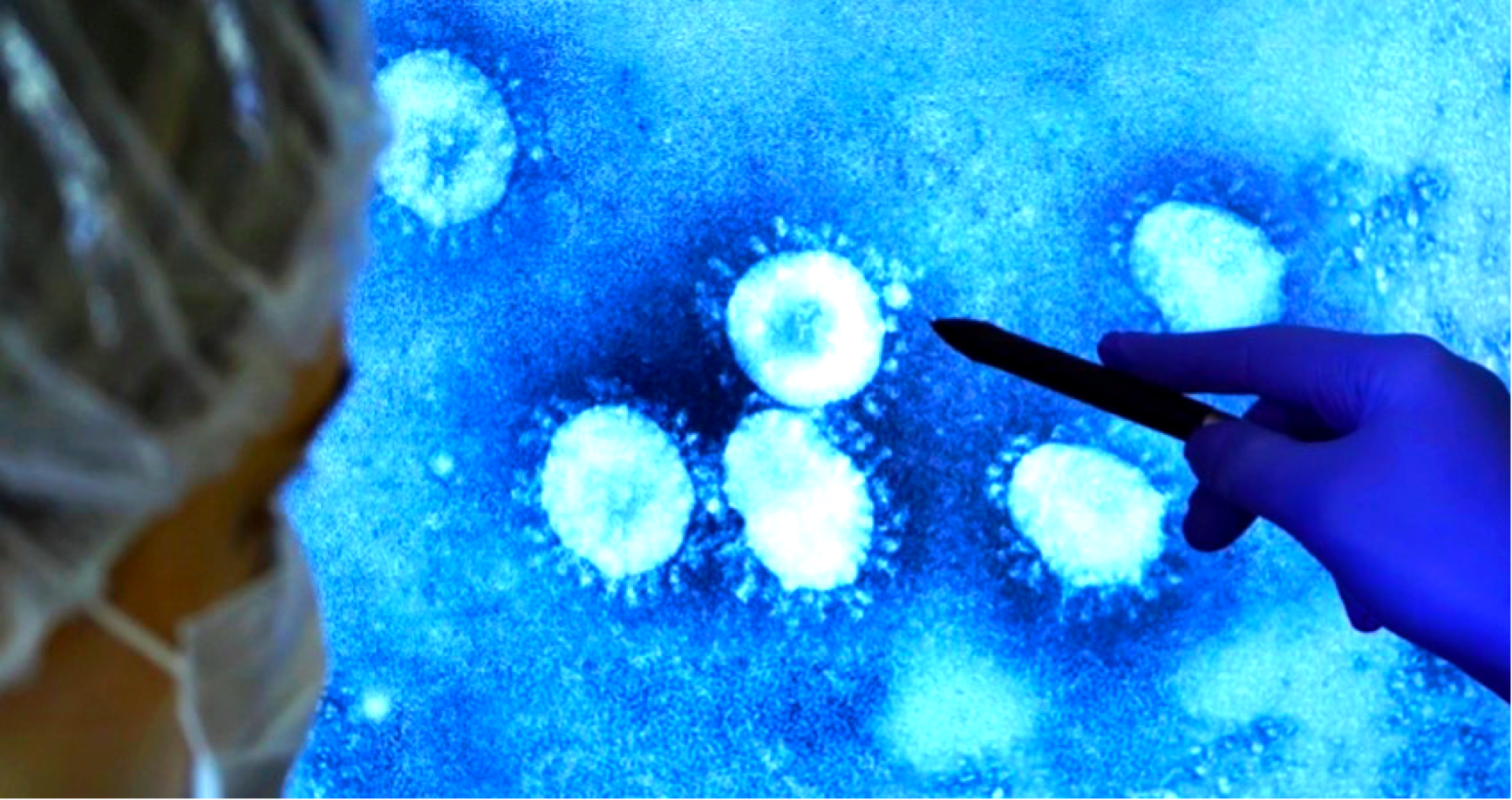
More than $4B of deals between biopharma companies and AI specialists were announced last year. Similar to the massive quality leap from GPT-2 to GPT-4 and the record-breaking consumer adoption rates of AI tools, that same exponential progress and uptake is coming to biotech AI. 2024 may bring the first one-trillion-parameter protein language model. Companies are already using AI to program, as opposed to discover, antibodies. This level of opportunity and change brings with it urgency—— companies need to rethink from the ground up how their R&D should work to compete in a new era defined by the intersection of biology, data, and AI.
In this webinar, learn how companies are updating their approach to R&D, with a focus on:
- AI-Ready Data: Improving generation of high-quality biomedical data to support AI model building and model tuning
- AI-Enabled Scientists: Integrating the right models directly into scientists’ workflows for everyday use
- Scalability: Making performance, speed, privacy, and cost tradeoffs for deployment of AI, and connecting the wet and dry labs

View this conversation highlighting how BIO member companies are strengthening food security and addressing climate change through biotechnology innovations in crop protection and efficient food production. Learn how regulation and policy can support agricultural innovation to protect our environment and our food supply.

View this conversation highlighting how BIO member companies are leveraging biotechnology innovations to enable advances in climate adaptation, mitigation, and resilience. Hear how diverse feedstocks and manufacturing processes are targeting emission reduction breakthroughs in hard-to-reach sectors. Learn how regulation and policy can better incentivize innovation and be structured to support new and emerging technologies throughout research, development, demonstration, and deployment.
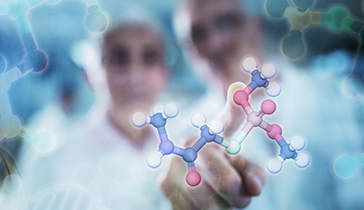
The Cell and Gene Therapy (CGT) Science Series is a quarterly seminar series focused on scientific topics related to cell and gene therapy products. The CGT Science Series is intended to foster scientific exchange between the Biotechnology Innovation Organization (BIO), the American Society of Cell & Gene Therapy (ASGCT), and Center for Biologics Evaluation and Research (CBER) review staff on a variety of topics that span the CGT product lifecycle. The seminars are planned as 60-minute virtual webinars featuring a speaker from one of the three organizations. The CGT Science Series will enable a deep dive into a specific technical and/or scientific area. Topics in the series may include but are not limited to, nonclinical, CMC, clinical, or post-market phases of development related to CGT product lifecycle.
Moderator:
– Anne-Virginie Eggimann, Tessera
Opening Remarks:
– Cartier Esham, Senior Advisor, Biotechnology Innovation Organization (BIO)
Speaker:
– Jing Liao, Director, Vector Development and Operations, Alexion Pharmaceuticals
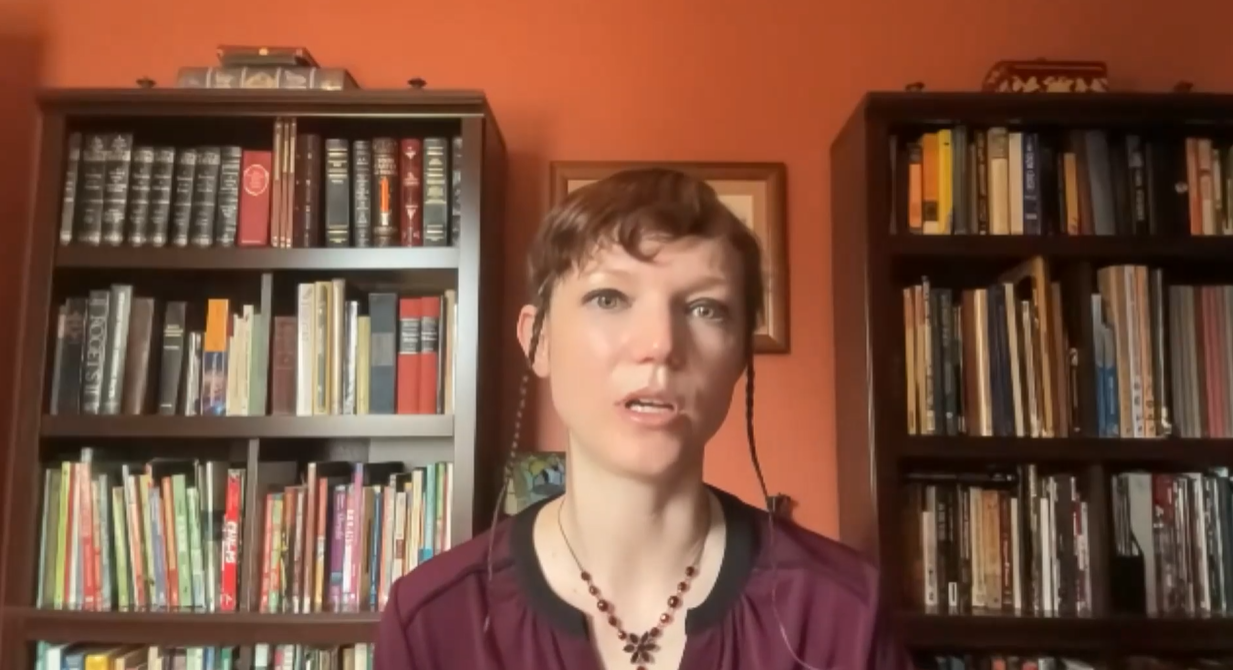
Cell + Gene Therapy Science Series
An ASGCT collaboration with BIO and FDA
The Cell and Gene Therapy (CGT) Science Series is a quarterly seminar series focused on scientific topics related to cell and gene therapy products. The CGT Science Series is intended to foster scientific exchange between the Biotechnology Innovation Organization (BIO), American Society of Gene & Cell Therapy (ASGCT), and FDA's Center for Biologics Evaluation and Research (CBER) review staff on a variety of topics that span the CGT product lifecycle. The seminars are planned as 60-minute virtual webinars featuring a speaker from one of the three organizations. The CGT Science Series will enable a deep dive into a specific technical and/or scientific area. Topics in the series may include, but are not limited to, nonclinical, CMC, clinical, or post-market phases of development related to CGT product lifecycle.
Short and Long Read Sequencing for AAV Characterization
The inaugural CGT Science Series seminar focused on NGS characterization of AAV and was presented by Dr. Lauriel Earley.
Dr. Earley is a Senior Scientist with Shape Therapeutics who has been studying the basic biology of adeno-associated virus for over decade. During her graduate studies at Oregon Health & Science University, she examined the role of assembly-activating protein under the mentorship of Dr. Hiroyuki Nakai. After receiving her PhD, she joined Dr. Jude Samulski's laboratory at the University of North Carolina, Chapel Hill and took on a project to characterize the intrinsic promoter ability of the inverted terminal repeat sequences from various AAV serotypes. Dr. Earley joined Shape Therapeutics in 2019 and is currently leading their vector platform development team. In addition, Dr. Earley has been an active member of ASGCT since 2012 and is currently serving on the Patient Outreach Committee.

This is the first meeting in a series of conferences cohosted by the Biotechnology Innovation Organization (BIO) and Solve M.E. that are designed to foster a private-public engagement and create an R&D roadmap for diagnostics and treatments for Long COVID and Post-infection Diseases.
Objective: Convene stakeholders to advance R&D to diagnose and treat Long COVID and post-infection diseases to:
--Increase awareness among drug developers to the unmet need and business opportunity in these indications
--Establish a knowledge base of emerging research in Long COVID and existing body of data in other post-infection diseases (such as dysautonomia, myalgic encephalomyelitis/ chronic fatigue syndrome, mast cell activation, and others).
--Highlight potential biological targets for therapeutic and preventative approaches
--Engage experts and regulators to inform design of clinical studies
--Establish a pre-competitive collaborative network
Recorded on February 21, 2023. Part 1 of 3.

This is the first meeting in a series of conferences cohosted by the Biotechnology Innovation Organization (BIO) and Solve M.E. that are designed to foster a private-public engagement and create an R&D roadmap for diagnostics and treatments for Long COVID and Post-infection Diseases.
Objective: Convene stakeholders to advance R&D to diagnose and treat Long COVID and post-infection diseases to:
--Increase awareness among drug developers to the unmet need and business opportunity in these indications
--Establish a knowledge base of emerging research in Long COVID and existing body of data in other post-infection diseases (such as dysautonomia, myalgic encephalomyelitis/ chronic fatigue syndrome, mast cell activation, and others).
--Highlight potential biological targets for therapeutic and preventative approaches
--Engage experts and regulators to inform design of clinical studies
--Establish a pre-competitive collaborative network
Recorded on February 21, 2023. Part 2 of 3.


